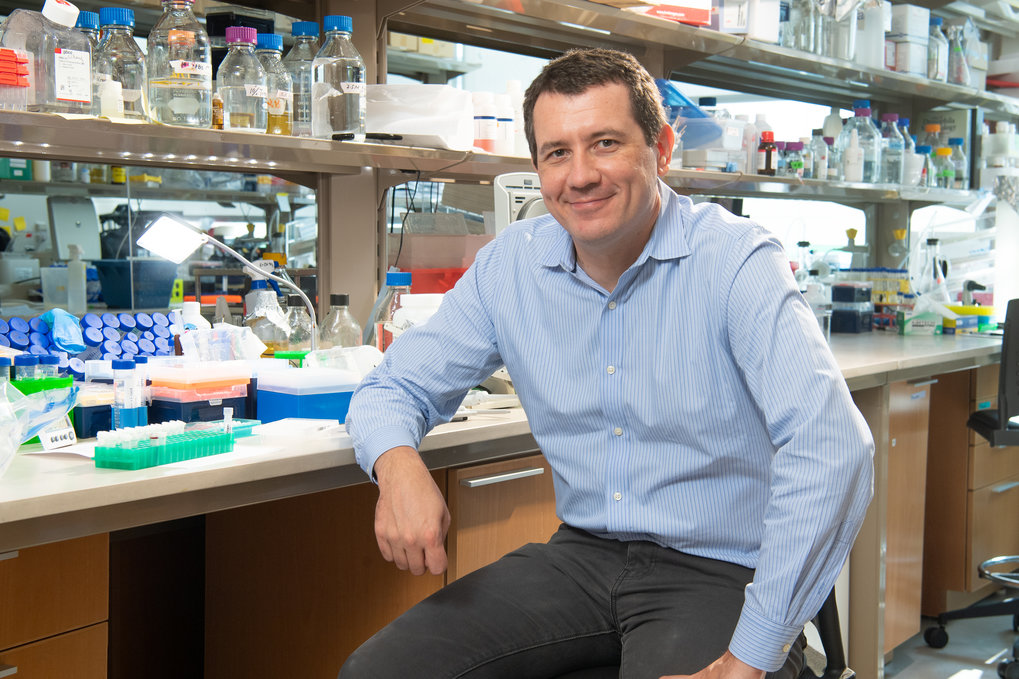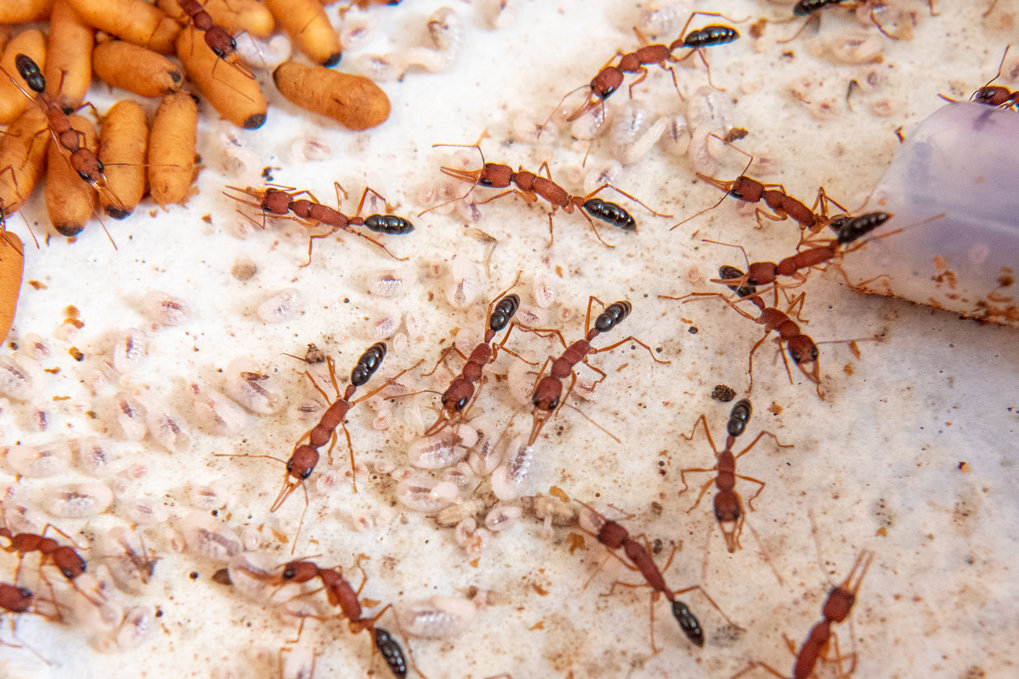Roberto Bonasio, winner of the Max Planck Humboldt Research Award 2020, explains what he finds particularly fascinating about ants
Roberto Bonasio of the University of Pennsylvania investigates how the epigenetic regulation of genes can influence the behavior and appearance of individuals. To this end, he is studying a species of ant in which workers can transform into queens – an impressive example of the importance of epigenetic changes for an organism.

Roberto Bonasio will provide insights into his research project on November 4 from 6 p.m. in the livestream . Marc Timmers from the German Consortium for Translational Cancer Research, partner location Freiburg, and Head of Department at the German Cancer Research Center will also be live on the web. The online seminar will take place instead of the originally planned award ceremony during the Berlin Science Week.
Roberto, you wrote your doctoral thesis in the field of immunology? How did you come to choose ants as a research object?
During my PhD studies in immunology the “histone code hypothesis” was proposed, stating that histone proteins contain epigenetic information and influence how and when genes are used. Having always been interested in basic molecular questions, that fascinated me immediately. For my postdoc I joined the lab of Danny Reinberg at New York University School of Medicine, who was at the forefront of molecular epigenetic research. Shortly after I joined his lab, he received, along with Shelley Berger from the University of Pennsylvania and Jürgen Liebig from Arizona State University a big award to study epigenetics in a new exciting field: social insects. Together they convinced me that it would be incredibly interesting to ask how the different castes of many ant species behave so differently, even though they have the same DNA sequence.
Unfortunately, they didn’t mention that it would also be incredibly difficult!
What did you have to learn about ants to keep these animals in the laboratory?
A lot, believe me! As a molecular biologist, I had no idea about ants before. Without Janko Gospocic and many other outstanding colleagues who built up the colony in our laboratory, I could not have established my research program in Harpegnathos saltator. The animals can sometimes be quite demanding when it comes to keeping and feeding.
Why did you choose this species from the countless ant species? What is so special about it?
We were pointed toward Harpegnathos saltator by Jürgen Liebig who has been working with them for decades. Their secret power is that all workers can become queens. And this is of course a fascinating process for someone like me who wants to understand the epigenetic basis of behavior. The animals even transition when they are not living in a colony. If you isolate a worker without the queen present, it will automatically start their transition.

What exactly happens during this transition?
Not much externally, but their brains are massively transformed. As in ants only the queens reproduce and the workers are sterile, the ovaries develop.
Most of the changes affect their behavior, most notably: workers hunt, queens lay eggs. Other changes are more subtle like their gait. My colleagues in the laboratory, for example, can tell from the way an animal walks whether it is a worker or a transformed queen.
In addition, the queens live much longer: their life expectancy is five times longer than that of workers. Just imagine what it would be like if some people were to become 80, yet others 400 years old.
Why this is we don’t know yet. But we were able to show that a group of so-called glial cells are enriched in the queens’ brains. These cells protect the nerve cells. Vertebrates have a similar cell type in the brain. Among other things, I would like to investigate the role they play in aging in vertebrates, when I am in Freiburg.
What else have you found out in your investigations?
What particularly amazed me is the large number of genes whose activity differs between worker and queen. We have now found 2000 such genes. Just imagine if as a professor, I had a brain in which thousands of genes are active differently from when I was a student – isn’t that fascinating?
In our analyses, we also identified a key molecule that controls the social identity and behavior of the animals: the neuropeptide corazonin suppresses behaviors that are typical for a queen. Consequently, if a worker is to become a queen, the formation of this signal molecule is reduced.
What can we learn from this?
Well, think about it: If turning on one or another gene can completely change your instinctive behavior, social status in a colony, even your life expectancy – what does that tell you about genetic predetermination? It tells you that genes are important-for sure-but that your genetic make-up is not your destiny. You too can be queen – at least if you are a Harpegnathos worker!
Is there something that you are particularly looking forward to in Germany?
At the scientific level, I am looking forward to meeting new colleagues and making new friends in the vibrant community researching epigenetics in Freiburg. On a personal level, after 20 years in the USA I will enjoy spending some time in Europe. And the fact that Freiburg is only a four-hour drive from my home town on Lake Maggiore does not hurt.
My mother is very pleased!
Interview: Harald Rösch








